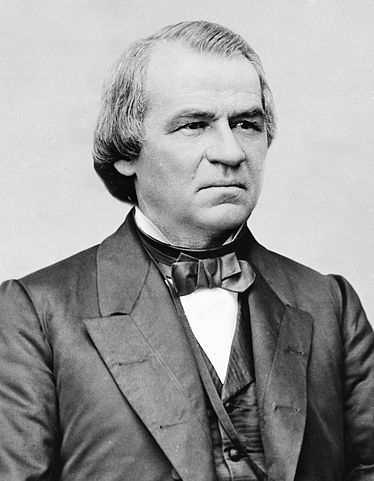Andrew Johnson, the 17th President of the United States, is a significant figure in American history. Here is an in-depth look at his early life, presidency, and legacy:
Early Life:
- Andrew Johnson was born on December 29, 1808, in Raleigh, North Carolina, in a log cabin. He grew up in poverty and had very little formal education, primarily teaching himself to read and write.

- Johnson worked as an apprentice to a tailor, a trade he would later practice and own a shop. He moved to Greeneville, Tennessee, where he settled and became involved in local politics.
- Despite his humble beginnings, Johnson’s tenacity and self-reliance led him to a successful career as a politician.
Political Career:
- Andrew Johnson’s political career began when he was elected as an alderman in Greeneville. He later served as mayor, state representative, and state senator in Tennessee.
- Johnson’s strong support for the Union and opposition to secession led to his appointment as military governor of Tennessee during the Civil War.
Vice Presidency:
- Johnson was a Southern Unionist and a Democrat. In 1864, President Abraham Lincoln chose him as his running mate, in part to help unify the country during the Civil War. Johnson served as Vice President from 1865 to 1869.
Presidential Succession:
- Upon President Lincoln’s assassination on April 14, 1865, Johnson became the 17th President of the United States. He was thrust into the presidency at a critical moment in American history, tasked with overseeing the nation’s recovery and reconstruction.
Presidential Reconstruction:
- Johnson’s approach to Reconstruction was lenient. He granted amnesty to many former Confederates and allowed Southern states to reorganize their governments and hold elections. This approach put him at odds with the more radical elements in Congress who sought a more stringent Reconstruction policy.
Conflict with Congress:
- Johnson’s resistance to the Reconstruction policies of the Radical Republicans in Congress led to an impeachment crisis. In 1868, he became the first U.S. president to be impeached by the House of Representatives. The Senate narrowly acquitted him, falling one vote short of the required two-thirds majority for conviction.
Legacy and Impact:
- Andrew Johnson’s presidency is often viewed as one of the least successful in American history. His lenient approach to Reconstruction and his battles with Congress hampered the process and contributed to ongoing racial tensions in the South.
- Johnson’s legacy is mixed. He is criticized for not doing enough to secure the civil rights of newly emancipated African Americans and for his resistance to the vision of Radical Republicans in Congress. However, he is also recognized for his commitment to preserving the Union during a challenging period in American history.
Post-Presidential Life:
- After leaving the presidency, Johnson returned to Tennessee and was elected to the U.S. Senate. He served in the Senate until his death.
Death:
- Andrew Johnson died of a stroke on July 31, 1875, in Carter County, Tennessee.
Andrew Johnson’s presidency was marked by political turmoil and challenges as he grappled with the aftermath of the Civil War and the complex process of Reconstruction. His legacy is shaped by his role in these critical events in American history.









